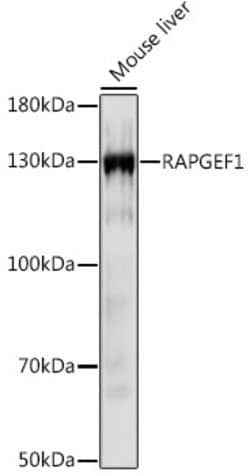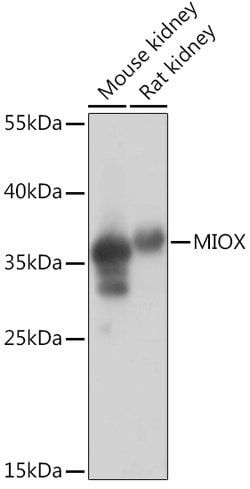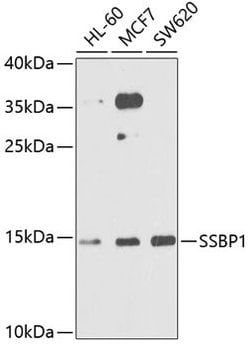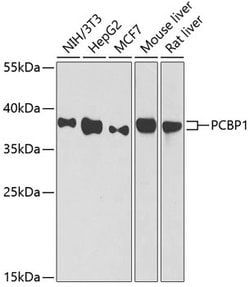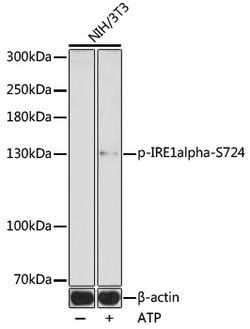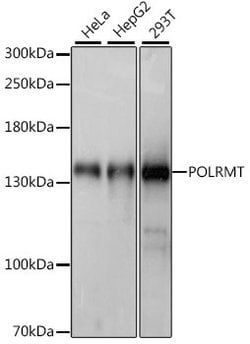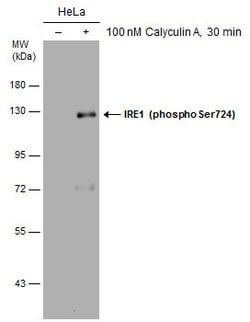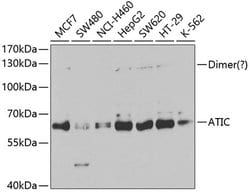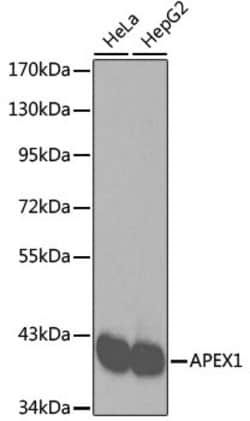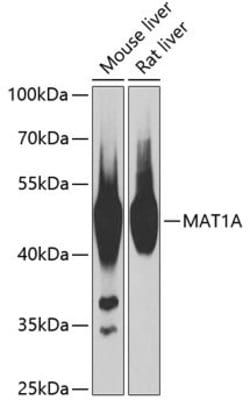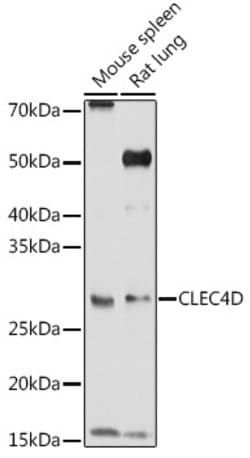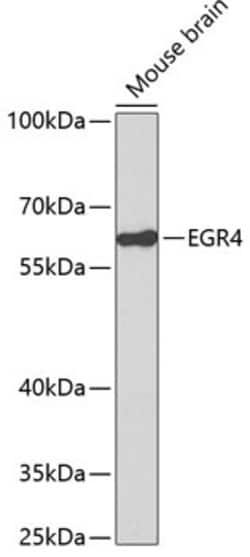APE1 Polyclonal Antibody, Invitrogen™
Manufacturer: Thermo Scientific
Select a Size
| Pack Size | SKU | Availability | Price |
|---|---|---|---|
| Each of 1 | PIPA5116972-Each-of-1 | In Stock | ₹ 47,392.50 |
PIPA5116972 - Each of 1
In Stock
Quantity
1
Base Price: ₹ 47,392.50
GST (18%): ₹ 8,530.65
Total Price: ₹ 55,923.15
Antigen
APE1
Classification
Polyclonal
Conjugate
Unconjugated
Gene
APEX1
Gene Alias
AP endonuclease 1; AP endonuclease class I; AP lyase; Ape; APE1; APEN; Apex; APEX nuclease; APEX nuclease (multifunctional DNA repair enzyme) 1; APEX nuclease 1; Apex1; apurinic/a; Apurinic/apy; apurinic/apyrimidinic (abasic) endonuclease; apurinic/apyrimidinic endodeoxyribonuclease 1; apurinic/apyrimidinic endonuclease; apurinic/apyrimidinic endonuclease 1; Apurinic-apyrimidinic endonuclease 1; APX; BAP 1; BAP1; deoxyribonuclease (apurinic or apyrimidinic); DNA-(apurinic or apyrimidinic site) endonuclease; DNA-(apurinic or apyrimidinic site) lyase; DNA-(apurinic or apyrimidinic site) lyase, mitochondrial; HAP1; protein REF-1; redox factor 1; redox factor-1; REF1; REF-1
Host Species
Rabbit
Purification Method
Affinity chromatography
Regulatory Status
RUO
Gene ID (Entrez)
328
Content And Storage
-20° C, Avoid Freeze/Thaw Cycles
Form
Liquid
Applications
Immunocytochemistry, Immunoprecipitation, Western Blot
Concentration
2.293 mg/mL
Formulation
PBS with 50% glycerol and 0.02% sodium azide; pH 7.3
Gene Accession No.
P27695
Gene Symbols
APEX1
Immunogen
Recombinant fusion protein containing a sequence corresponding to amino acids 1-318 of human APEX1/APE1 (NP_5423801)
Quantity
100 μL
Primary or Secondary
Primary
Target Species
Human
Product Type
Antibody
Isotype
IgG
Description
- Positive Samples: HeLa, HepG2 Immunogen sequence: MPKRGKKGAV AEDGDELRTE PEAKKSKTAA KKNDKEAAGE GPALYEDPPD QKTSPSGKPA TLKICSWNVD GLRAWIKKKG LDWVKEEAPD ILCLQETKCS ENKLPAELQE LPGLSHQYWS APSDKEGYSG VGLLSRQCPL KVSYGIGDEE HDQEGRVIVA EFDSFVLVTA YVPNAGRGLV RLEYRQRWDE AFRKFLKGLA SRKPLVLCGD LNVAHEEIDL RNPKGNKKNA GFTPQERQGF GELLQAVPLA DSFRHLYPNT PYAYTFWTYM MNARSKNVGW RLDYFLLSHS LLPALCDSKI RSKALGSDHC PITLYLAL Mammalian apurinic/apyrimidinic endonuclease (APE/ref-1) is a multifunctional, bipartite enzyme that plays an important role in numerous, cellular functions
- APE is responsible for repairing abasic sites in DNA and in regulating the redox state of other proteins that play roles in oxidative signaling, transcription factor regulation (Fos, Jun, NF-kB, Myb, HIF-1 alpha, CREB, Pax), cell cycle control (p53), and apoptosis
- The most common form of DNA damage is the creation of abasic sites which are brought about through spontaneous loss or oxidative DNA damage, through chemically initiated hydrolysis (chemotherapy), ionizing radiation, UV irradiation, oxidizing agents, and removal of modified bases by DNA glycosylases
- APE is differentially expressed during development and in different tissues
- This protein has diverse subcellular localization patterns which support the possibility of its interaction with numerous, other cellular proteins in addition to DNA repair within the nucleus
- Regulation of APE by phosphorylation is mediated, at least in part, by casein kinase II
- Increases in APE message and protein levels are observed upon the reintroduction of oxygen to hypoxic cells, and in some malignant tissue relative to normal tissue
- Decreases in APE expression have been associated with the induction of cellular apoptosis.
